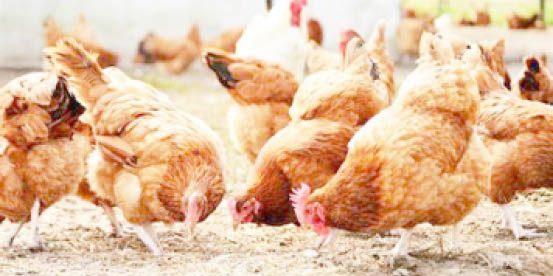A powerful new analysis released on August 22 by Compassion in World Farming warns that it will be impossible to stop the spread of bird flu or lower the likelihood of a worldwide human pandemic without significant changes to industrial farming.
The report titled, “Bird flu: Only major farm reforms can end it.” Contrary to common opinion, the disease usually affects wild birds rather than being the source of it, and it is out of control as a result of the rise of factory farming. The international Scientific Task Force on Avian Influenza, which was established to offer governments advice and recommendations, supports this point of view.
Author of the report and Chief Policy Adviser at Compassion in World Farming, Peter Stevenson, said: “Bird flu is like a ticking time bomb. Unless we wake up and take urgent action to end factory farming, we will simply be unable to stop its rapid spread across the globe or reduce the risk of a serious human pandemic developing.”
“Three key actions are needed to tackle this disease – vaccination, major reform of the poultry industry and an end to the factory farming of pigs. Governments around the world must implement this three-point plan without delay. If they don’t, millions more birds and other mammals are likely to suffer and die and the health of millions of people may be in serious jeopardy.”
Interior minister, Tunji-Ojo unveils 7-point agenda
NASFAT president tasks new ministers on performance
Mass vaccination of flocks to slow the spread
The poultry industry needs to be drastically restructured in order to embrace smaller flocks with lower stocking densities and more resilient breeds, as well as avoid clusters of poultry farms, in order to lessen the risk of the emergence and spread of highly pathogenic strains.
The World Organisation for Animal Health (WOAH) and the United Nations Food and Agriculture Organization (FAO) have been contacted by the animal welfare and environmental NGO to urge them to collaborate to implement this action plan as soon as possible. The governments of Europe, the UK, and the US have also been contacted.
Although the exact number is believed to be in the millions, reports of bird flu deaths among wild birds number in the tens of thousands. The bird flu that affected wild birds in the past often did not damage them. However, the virus can transform into the fatal Highly Pathogenic Avian Influenza (HPAI) when it enters packed factory farm chicken sheds (frequently carried in on workers’ contaminated shoes, clothing, or equipment).
These industrial farms provide viruses with a steady supply of hosts, allowing infections to spread quickly and for extremely dangerous new strains to arise. This creates the perfect environment for the disease to spread.
Since 2021, avian flu has caused more than half a billion farmed birds to die or be destroyed globally. Many of them were broilers (meat chickens) kept in cages the size of an A4 sheet of paper on industrial farms, where they are housed in close quarters in large sheds.
The avian flu affects animals other than birds. In addition to otters, foxes, dolphins, sea lions, mink, and domestic dogs and cats, the disease has already spread to mammals. It has also acquired the capacity to move from one mink to another, which makes it much more harmful than it was before in mammals.
Since 2003, there have been at least 875 infections worldwide. The 1918 Spanish flu outbreak and the 2009 swine flu outbreak, both brought on by influenza viruses with avian origin genes, starkly demonstrate the potential of zoonotic illness.
The probability that a hazardous form of the virus would emerge and start the next pandemic increases, according to Professor Devi Sridhar, chair of global public health at the University of Edinburgh.
In July 2023, the World Organization for Animal Health (WOAH), the World Health Organisation (WHO), and the UN’s Food and Agriculture (FAO) issued a joint statement that stated: “Avian influenza viruses normally spread among birds, but the increasing number of H5N1 avian influenza detections among mammals – which are biologically closer to humans than birds are – raises concern that the virus might adapt to infect humans more easily.”

 Join Daily Trust WhatsApp Community For Quick Access To News and Happenings Around You.
Join Daily Trust WhatsApp Community For Quick Access To News and Happenings Around You.


